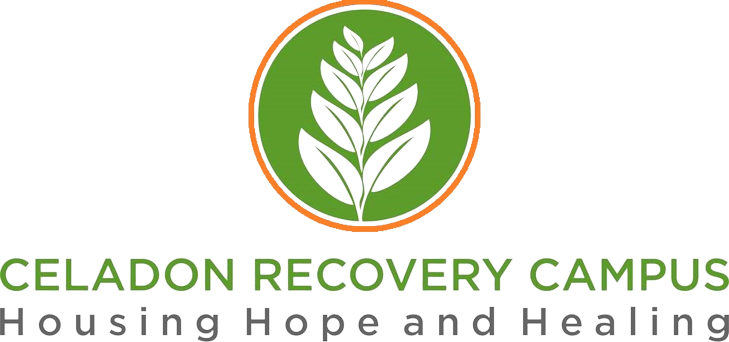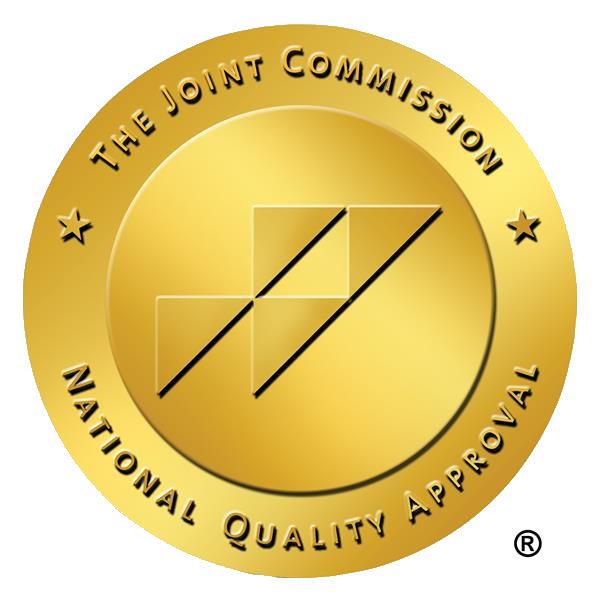Florida Drug and Alcohol Detox
Getting Help for Substance Abuse and Addiction
Are you or your loved one struggling with drug or alcohol addiction? Do you need help in overcoming your addiction? If yes, then you have come to the right place. Celadon Recovery is a Florida-based treatment center that provides a wide range of treatment services to help you recover from addiction. We specialize in detoxification and the treatment of co-occurring disorders, providing compassionate care to those struggling with substance abuse and addiction.
At Celadon Recovery, we understand that addiction is a complex disease that affects the mind, body, and spirit. That’s why we offer a holistic approach to addiction treatment, addressing the physical, emotional, and spiritual aspects of addiction. Our comprehensive substance abuse treatment programs include alcohol treatment, residential treatment, and outpatient treatment. We believe that addiction recovery is not just about abstinence, but about achieving wellness and living a fulfilling life.
Our state-of-the-art treatment facility is staffed by experienced and compassionate professionals who are dedicated to helping you achieve lasting recovery. We provide evidence-based treatment modalities, including individual therapy, group therapy, and family therapy, to address the underlying causes of addiction and promote healing. With a focus on relapse prevention and aftercare, we support you every step of the way as you navigate your journey towards addiction recovery.
If you or your loved one is struggling with addiction, don’t wait any longer to seek help. Contact Celadon Recovery today to learn more about our treatment services and how we can help you detoxify, recover, and achieve wellness.
Detox Centers in Florida: The First Step in Recovery
Detox is the first step towards recovery from drug or alcohol addiction. It involves the process of removing toxins from your body and managing the withdrawal symptoms that occur when you stop using drugs or alcohol. Celadon Recovery offers medical detox programs that are supervised by licensed medical professionals to ensure that you detox safely and comfortably.
At Celadon Recovery, we offer both inpatient and outpatient detox programs to meet the needs of our clients. Our inpatient detox program provides 24/7 medical monitoring and support in a comfortable, home-like setting. Our outpatient detox program is a less intensive option for those who do not require 24/7 medical monitoring and wish to continue working or attending school during the detox process.
What is Detox?
One aspect of drug and alcohol addiction is physical dependence. Some drugs carry more risk than others of developing a dependence, such as opioids, alcohol, and benzodiazepines. Physical dependency develops after heavy use of a substance and is usually first apparent by the presence of a raising tolerance. Tolerance is a term referring to the need for a drug abuser to use more and more of a substance in order to achieve the same high. As tolerance raises, the abuser begins to consume more of the substance, building an even stronger tolerance and dependency. It’s this dependency that creates the necessity for a detox. That being said – what is drug detox?
Why Medical Detox Matters
There’s no doubt that seeking treatment can be scary. Change is hard, and drug abuse often represents a chronic and complex issue in our clients’ lives. We understand that many of our clients have had numerous attempts at recovery in the past. We also know that some people come to our recovery center feeling discouraged or even hopeless.
Our medical detox provides a safe and professional space to start your recovery process. Our trusted providers will help you every step of the way.
It’s important to consider that detoxing cold turkey can be dangerous. In some cases, problematic withdrawal symptoms associated with alcohol, opioids, or benzodiazepines may even be fatal. Therefore, medical experts advise against detoxing on your own.
Furthermore, if you struggle with co-occurring disorders like depression or anxiety, your symptoms may be exacerbated during this time. You may be at a heightened risk for issues related to suicidal ideation, self-harm, delusions, or anhedonia. That’s why structured support is so crucial during detox- our continuous monitoring can help this transition feel more comfortable.
How Long Does Detox Take?
When examining treatment options, you might feel confused by all the timelines. First, it’s important to note that recovery looks different for everyone. While some people may complete detox within a day or two, others may be experiencing acute detoxication for over a week.
The length of detox depends on several factors, including the
frequency of drug use
your medical history
past history of detoxing
current physical health
types of drugs used
Detox helps people navigate through the various stages of withdrawal. Withdrawal symptoms may emerge as quickly as a few hours after your last substance use.
These symptoms can range in severity, but they vary from person to person. Similarly, even if you have experienced withdrawal before, this time may feel different than the last. On average, with most addictions, withdrawal symptoms tend to peak within a few days and significantly taper off around one week.
Addiction Treatment Programs
Celadon Recovery offers evidence-based addiction treatment programs that address the complex needs of those struggling with substance use disorders. Our individualized treatment plans are designed to help individuals achieve lasting recovery and maintain a healthy lifestyle.
Our addiction treatment programs include inpatient and outpatient options, as well as specialized programs for those with co-occurring mental health conditions and substance abuse disorders. Family members are encouraged to participate in the recovery process to support their loved ones and improve the chances of successful outcomes.
Our inpatient addiction treatment program offers 24/7 care in a supportive and therapeutic environment. This level of care is ideal for those with severe addiction or mental health issues. Our outpatient program is a less intensive option that allows individuals to maintain their daily routine while receiving ongoing support and treatment.
We provide treatment for substance use disorders including alcohol abuse, alcohol use, drug use, prescription drugs, and methamphetamine. Our recovery center also offers healthcare services to address mental health conditions and co-occurring disorders. We accept most health insurance plans to make treatment accessible to all.
Medications During Detox
You may be prescribed specific medications to take during detox. These medications are usually advised for clients struggling with co-occurring disorders, severe withdrawal symptoms, or certain medical needs.
Our staff will administer these medications to you on a routine schedule. We will also regularly check your vital signs, pain levels, and overall physical and emotional health status.
Can I Detox at Home?
Many people try to detox from drugs or alcohol at home, but this rarely works for most people. Detoxing at home can be dangerous and can lead to serious health complications.
Detox is more successful with the support of a doctor, which is why many people choose to sign up for residential programs. These programs provide 24/7 medical supervision in an environment where individuals are less likely to relapse.
Otherwise, those trying to quit their drug addiction could face severe consequences, as withdrawal symptoms often produce cravings and powerful urges to return to taking drugs or alcohol.
Getting professional medical attention during your detox is the safest way to lessen your withdrawal symptoms and avoid relapse.
The Process of Detoxification
The detoxification process includes a thorough physical examination to make sure the patient is healthy enough to withstand the rigors of detox. If a patient has any physical health concerns, they must resolve these before detox can begin.
The patient will undergo a mental health assessment; then, the physician will develop a treatment plan tailored to their specific needs.
The next step in the detox process is usually residential treatment. This level of care provides patients with a safe and sober environment to detox in and intensive therapy.
After admission, a medical team will oversee the detox process. Because many drugs affect the brain and body differently, each narcotic requires a unique approach to detoxification.
Most doctors will prescribe medications to help ease withdrawal symptoms and minimize cravings for drugs or alcohol.
Counseling is another essential part of detox. A therapist will help them deal with the emotional aspects of addiction and withdrawal in individual and group sessions.
Side Effects of Detox
The brain will attempt to return to its natural chemistry during the detox process, which may produce various side effects as the brain tries to find equilibrium once again.
During detox, some of the most common side effects include irritability, mild depression, anxiety, insomnia, nausea, fatigue, and an intense craving for the drug. A person may also experience hallucinations or delusions.
Severe withdrawal symptoms are also possible, though uncommon; they include seizure, heart attack, stroke, or death.
Understanding Withdrawal
Withdrawal is a response to drug dependence, and it happens after reducing or abstaining from substance use. Withdrawal tends to be most uncomfortable for people detoxing from opioids, alcohol, and benzodiazepines.
Common physical withdrawal symptoms may include:
Nausea and vomiting
Sweating
Increased heart rate
Muscle aches and pain
Fluctuating body temperature
Headaches
Abdominal distress
Flu-like symptoms
Common emotional and mental health withdrawal symptoms may include:
Irritability
Depression
Anxiety
Paranoia
Hallucinations
Problems with focus and concentration
Mood swings
Confusion
Many people experience heightened cravings during detox. This is normal, and it is a typical response to any drug addiction. That’s why we recommend seeking medical detox- you’ll have round-the-clock support from our staff.
If an intense urge to drink or use drugs arises, you can process your feelings and talk through your discomfort. We will help you to avoid acting on these impulses.
What Happens After Detox?
SAMHSA takes a firm stance that detox isn’t considered addiction treatment.
Instead, it’s a brief period of medical stabilization. While you may receive some counseling interventions and dual diagnosis support, it is not a substitute for effective care.
After detox, it is important to step into a residential, partial hospitalization, intensive outpatient, or outpatient level of care. This exact step-down process will depend on your drug addiction and mental health status. Our staff will recommend an appropriate timeline based on these factors.
Our treatment center offers this full continuum of care. That means we support our clients from detox to inpatient to long-term outpatient services.
We also assist with aftercare and sober living. We believe that completing this process is essential for safeguarding your addiction recovery.
How Can You Support Your Loved One in Detox?
Getting your loved one into a trusted treatment facility is a significant milestone. You may feel relieved that they’re finally getting help. However, you might also feel worried, angry, confused, or discouraged about what lies ahead.
These feelings are typical. Family members often want to be involved in substance abuse treatment, but they don’t want to make things worse. Here are some tips.
Educate Yourself on Addiction
Research shows that drug and alcohol addictions are brain diseases. People don’t choose to have addictions, and stopping use isn’t a simple matter of willpower.
Educating yourself on addiction and addiction treatment in Florida can help you feel prepared for what to expect. With that, don’t be afraid to ask questions. Our behavioral health professionals are here to support the whole family.
Take Care of Yourself
During your loved one’s time at our Florida rehab center, they will learn many recovery tools to boost their self-esteem and mitigate the likelihood of a relapse. Our treatment services are designed to help people change wholeheartedly. Detox is just the first step of this process.
Although it may seem challenging, it’s important to pay attention to your own needs during this time. Try to practice self-care. Reach out for support. And if you struggle with drug or alcohol abuse yourself, consider seeking your own treatment.
Practice Patience
Participating in drug rehab can be mentally taxing. Many of our clients struggle with feeling guilty or ashamed once they enter addiction recovery.
All substantial change takes time, so try to be mindful that sustainable growth probably won’t happen overnight. This is especially true if your loved one has struggled with a substance use disorder for many years.
Remember that any effort in the right direction is an effort worth praising. Aim to be patient and supportive during this time. Maintaining that mindset will be helpful for both you and your family members.
Alcohol Rehab Centers in Florida
At Celadon Recovery, we understand that addiction is often accompanied by other mental health conditions. That’s why we offer a dual diagnosis program that provides specialized treatment for individuals with co-occurring disorders. Our team of experts works together to create personalized treatment plans that address both substance abuse and mental health issues.
In addition to our dual diagnosis program, we offer evidence-based addiction treatment programs that are designed to help you overcome your addiction and develop the skills necessary to maintain sobriety. Our treatment programs are tailored to meet your unique needs and include inpatient and outpatient programs, group and individual therapy, and support groups.
Once detox is complete, the individual can begin addiction treatment. Celadon Recovery offers a range of evidence-based addiction treatment programs, including inpatient and outpatient options, to help individuals achieve and maintain sobriety.
Our inpatient addiction treatment program provides intensive, around-the-clock care in a supportive and therapeutic environment. This program is ideal for those who require a higher level of care and support due to the severity of their addiction.
Our outpatient addiction treatment program is a less intensive option for those who have completed inpatient treatment or do not require a higher level of care. This program allows individuals to continue their recovery journey while maintaining their daily routine and responsibilities.
We also offer a range of specialized treatment programs to meet the unique needs of our clients, including treatment for opioid and benzodiazepine addiction.
At Celadon Recovery, we believe that family members play a crucial role in the recovery process. That’s why we offer support services for families and loved ones, including family therapy and education on addiction and recovery.
We understand that navigating the healthcare system can be overwhelming. That’s why our team works closely with insurance providers to ensure that our clients receive the care they need. We accept a wide range of insurance plans and offer financing options for those without insurance.
Addiction Treatment Programs
Addiction Treatment Programs
Celadon Recovery offers evidence-based addiction treatment programs that address the complex needs of those struggling with substance use disorders. Our individualized treatment plans are designed to help individuals achieve lasting recovery and maintain a healthy lifestyle.
Our addiction treatment programs include inpatient and outpatient options, as well as specialized programs for those with co-occurring mental health conditions and substance abuse disorders. Family members are encouraged to participate in the recovery process to support their loved ones and improve the chances of successful outcomes.
Our inpatient addiction treatment program offers 24/7 care in a supportive and therapeutic environment. This level of care is ideal for those with severe addiction or mental health issues. Our outpatient program is a less intensive option that allows individuals to maintain their daily routine while receiving ongoing support and treatment.
We provide treatment for substance use disorders including alcohol abuse, alcohol use, drug use, prescription drugs, and methamphetamine. Our recovery center also offers healthcare services to address mental health conditions and co-occurring disorders. We accept most health insurance plans to make treatment accessible to all.
Inpatient Treatment Center
If you require intensive care for your addiction, our inpatient treatment center is the right choice for you. Our residential program provides a safe and supportive environment where you can focus on your recovery without any distractions. Our inpatient treatment programs are evidence-based and provide a comprehensive range of services that are tailored to meet your unique needs.
Outpatient Treatment Programs
If you need flexible treatment options that allow you to maintain your daily routine, our outpatient treatment programs are the perfect fit for you. Our outpatient programs provide a wide range of services, including individual therapy, group therapy, and support groups. Our programs are designed to help you recover from addiction while allowing you to maintain your daily responsibilities.
Detox in South Florida
Drug addiction can be challenging to overcome, but with the right help, you can recover. At Celadon Recovery, we offer evidence-based drug rehab programs that are designed to help you overcome your addiction and develop the skills necessary to maintain sobriety. Our drug rehab programs include medical detox, inpatient and outpatient programs, group and individual therapy, and support groups.
If you or your loved one is struggling with drug or alcohol addiction, seeking help is the first step towards recovery. Celadon Recovery is a Florida-based drug and alcohol detox and addiction treatment center that provides evidence-based treatment programs to help you overcome your addiction and develop the skills necessary to maintain sobriety. Our programs are tailored to meet your unique needs, and we provide a safe and supportive environment where you can focus on your recovery. Contact us today to learn more about our programs and how we can help you on your recovery journey.





